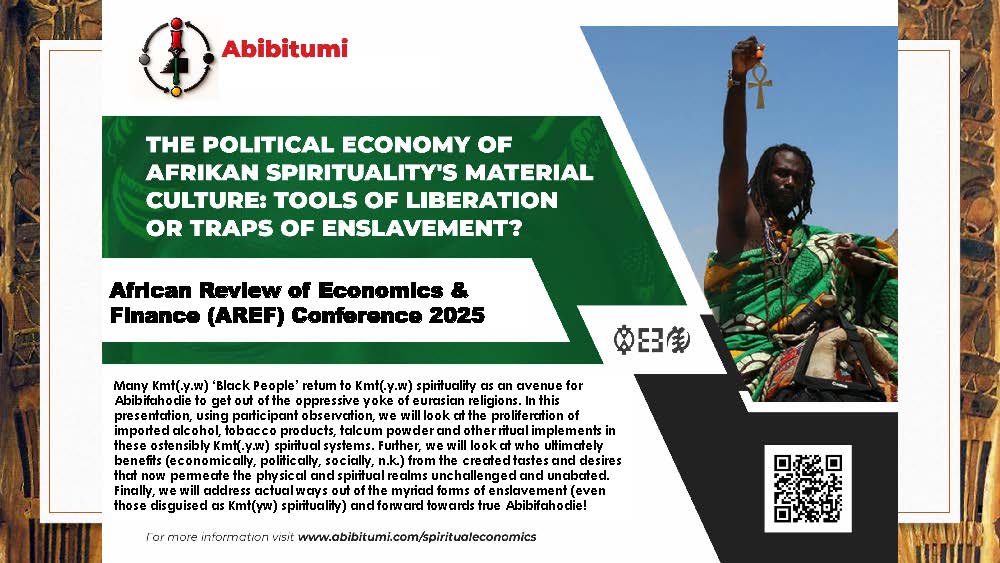Description
Format & Access
-
Type: Video presentation
-
Duration: 35 minutes 29 seconds
-
Access: Secure video link provided upon purchase
This presentation-product centers on a hard question: How Indigenous is the Material Culture of the Spiritual Systems of Abibifoɔ ‘Black People’? and what does that mean for Abibifahodie ‘Black Liberation’ in real, everyday practice.
Drawing on participant observation and a sharp political-economy lens, Ɔbenfo Obadele Bakari Kambon (Nana Kwame Pɛbi Datɛ I) exposes how imported alcohol, tobacco, talc-based “spiritual” cosmetics, and other ritual implements have quietly infiltrated Kmt(yw)-rooted spiritual systems. He follows the money trail to show who actually benefits from these created tastes and desires—and how what looks like “tradition” can mask neo-colonial economic enslavement.
Anchored in the thought of Nana Abibifahodie (Nana Kamau Kambon), Nana Amílcar Cabral, Nana Amos N. Wilson, Nana Kwame Nkrumah, Marimba Ani and others, this work develops Kambondigm—a set of organizing principles and evaluative criteria—to help Abibifoɔ rigorously assess any thought, practice, or product by asking: Who originated it? Who benefits? To what end? With what consequences for Black people: Abibifahodie or aborɔfoɔ nhyɛsoɔ?
In this presentation, you will:
-
Unpack how “created tastes and desires” function as tools of economic and spiritual control in Ghana and beyond.
-
See concrete trade data (alcohol, tobacco, cosmetics) tied directly to “spiritual” consumption.
-
Understand culture as an immune system and how Cultural-Linguistic AIDS leaves Black communities open to destructive imports.
-
Learn how historical protectionism has been used by other nations to ensure their “surthrival”—and what that implies for Abibifoɔ.
-
Gain a practical accountability framework to chart, day by day, whether your spiritual and cultural practices fund Black liberation or eurasians.
Perfect for scholars, practitioners, organizers, and serious students of Kmt(yw) spirituality and Pan-Abibifahodie economics, this presentation is both a wake-up call and a toolkit for stopping the financing of our own oppression—even in the name of “spirituality.”







Reviews
There are no reviews yet.